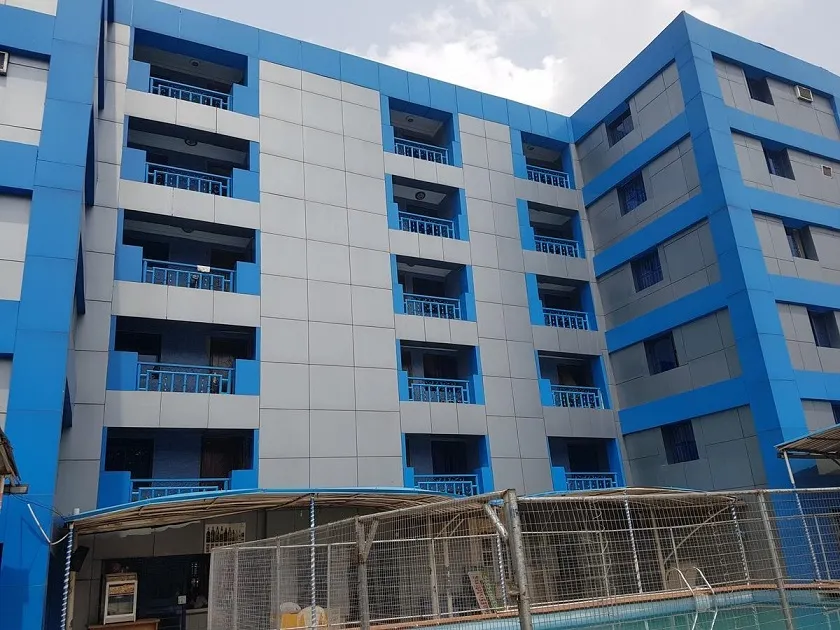Located within the Ikeja division of Lagos State, Ogba stands out as one of the most vibrant and fast-growing neighborhoods on the Lagos mainland. Blending residential comfort with commercial and industrial activity, Ogba has evolved into a thriving community that attracts families, professionals, entrepreneurs, and traders alike. Its combination of accessibility, affordability, and social warmth makes it one of the most desirable places to live and work in Ikeja, Lagos.
Location and Accessibility
Ogba enjoys a strategic location northwest of Ikeja, bordered by Agege, Ikeja GRA, Oke-Ira, and Iju-Ishaga. This makes it a convenient and central hub for people who work within or around the Ikeja business district.
Key Road Networks: The area is connected by major routes such as Oba Akran Avenue, Agege Motor Road, and the Lagos-Abeokuta Expressway, ensuring smooth access to other parts of Lagos.
Public Transportation: Residents have multiple commuting options — from danfo buses, keke, and okadas to modern ride-hailing services like Bolt and Uber.
Proximity to Major Hubs: The Ikeja Bus Terminal and Murtala Muhammed International Airport are both nearby, making Ogba ideal for professionals and frequent travelers.
Community and Lifestyle
Ogba offers the perfect blend of urban energy and neighborhood warmth. The streets are lively and filled with local markets, restaurants, shops, and transport activities. Despite its pace, Ogba retains a strong community-oriented atmosphere, where residents share close relationships and participate in social gatherings and events.
Cultural Diversity: The neighborhood is home to people from various backgrounds, and this diversity reflects in its food, festivals, and local traditions.
Religious Harmony: Churches, mosques, and community centers serve as social and cultural anchors, fostering inclusivity and coexistence.
Commerce and Economic Activity
Economically, Ogba is one of the most active areas in Ikeja, Lagos, contributing significantly to both the formal and informal economies.
Ogba Market: The popular Ogba Market serves as a central hub for daily shopping — from fresh produce to groceries and household goods.
Retail and Business Hubs: Small and medium-scale enterprises thrive here, including shops, salons, supermarkets, and professional service centers.
Industrial Presence: The Ogba Industrial Estate is a key economic driver, housing factories, warehouses, and light manufacturing firms that create jobs and stimulate local commerce.
This mix of retail, trade, and industry makes Ogba a vital link in Lagos’s economic ecosystem.
Education and Healthcare
Families in Ogba benefit from accessible education and healthcare services within and around the community.
Schools: Reputable institutions such as Corona School, Dansol High School, and Ogba Primary School provide quality education at various levels. Parents can also access schools in nearby Ikeja and Agege, offering a broad range of options.
Healthcare: Residents have access to private hospitals, clinics, and pharmacies like Ogba Medical Centre and Ifako General Hospital, ensuring reliable healthcare coverage for the community.
Recreation and Lifestyle Amenities
Ogba balances its commercial activity with recreational and lifestyle offerings that make it a pleasant place to live.
Parks and Outdoor Spaces: Community parks and open spaces provide opportunities for relaxation, fitness, and family activities.
Dining and Entertainment: The area is filled with local bukas, restaurants, fast-food joints, and lounges, offering both traditional Nigerian meals and international dishes.
Shopping: From JARA Mall to neighborhood convenience stores, residents enjoy easy access to modern retail and street-side shopping experiences.
Infrastructure and Urban Development
Ogba’s growth continues in line with Lagos’s urban expansion. Over time, the community has benefited from improvements in road networks, drainage, and utilities, though some challenges persist.
Traffic Congestion: Peak-hour traffic is common, especially around markets and commercial centers.
Flooding: Certain areas still experience drainage issues during the rainy season.
Power Supply: Like much of Lagos, inconsistent electricity supply remains a concern.
Despite these challenges, Ogba’s infrastructure remains relatively stable and well-maintained, thanks to its closeness to Ikeja, the administrative capital of Lagos State.
Social Life and Community Spirit
Ogba’s strength lies in its people. The neighborhood thrives on collective energy — a mix of traders, artisans, white-collar workers, and students contributing to its daily vibrancy.
Youth and Innovation: Many young residents drive small businesses, tech startups, and creative ventures that reflect Lagos’s entrepreneurial spirit.
Community Engagement: Residents participate in local associations, sports clubs, and religious gatherings that reinforce unity and support.
Challenges in Ogba
Ogba, like many rapidly developing Lagos neighborhoods, faces a few urban challenges:
- Traffic congestion during rush hours.
- Population pressure on housing and infrastructure.
- Drainage and waste management issues in certain pockets.
However, strong community involvement and ongoing infrastructural projects continue to improve living conditions and urban resilience.
Why Live in Ogba, Lagos?
Ogba’s enduring appeal lies in its balance of urban convenience, affordability, and community life.
- Accessibility: Quick access to Ikeja, Agege, and other commercial centers.
- Affordability: Wide range of housing options for different income levels.
- Community: A welcoming, socially connected environment.
- Opportunity: Active business scene and employment prospects.
Whether you’re a young professional, family, or entrepreneur, Ogba offers a dynamic Lagos lifestyle — energetic, inclusive, and full of potential.
Key Takeaways
Family-Friendly: Schools, hospitals, and parks within easy reach.
Prime Location: Situated near Ikeja with excellent transport links.
Commercial Hub: Active markets, industrial estate, and growing SMEs.
Cultural Diversity: Strong social and religious inclusivity.
See House Listings in Ogba | Check Out House Rental Options in Ogba | View Flats Listings in Ogba | See Flats Rental Listings in Ogba | Browse Land Listings in Ogba
